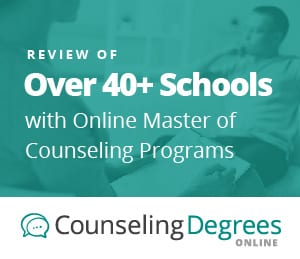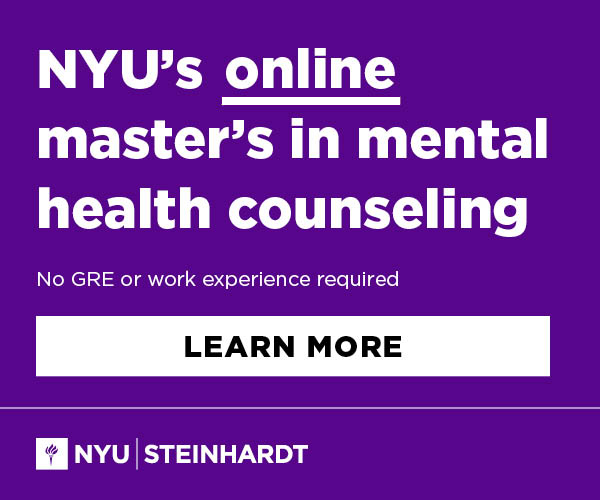 Pepperdine University : Master of Arts in Psychology (No GRE required)
Pepperdine University : Master of Arts in Psychology (No GRE required) Southern New Hampshire University (SNHU) : MS Psychology (Flexible. Affordable. And achievable.)
Southern New Hampshire University (SNHU) : MS Psychology (Flexible. Affordable. And achievable.) Southern New Hampshire University (SNHU) : Online Psychology Degrees (Bachelors and Masters. Flexible. Affordable. And achievable.)
Southern New Hampshire University (SNHU) : Online Psychology Degrees (Bachelors and Masters. Flexible. Affordable. And achievable.) Southern New Hampshire University (SNHU) : MS Psychology with concentration in Child and Adolescent Developmental Psychology (Flexible. Affordable. And achievable.)
Southern New Hampshire University (SNHU) : MS Psychology with concentration in Child and Adolescent Developmental Psychology (Flexible. Affordable. And achievable.) Purdue University Global : Masters in Psychology (100% Online)
Purdue University Global : Masters in Psychology (100% Online)Consider a Featured Online Counseling Program
| School and Program Information | Online Program? Entry Requirements |
Course Information |
|---|---|---|
| Pepperdine University
Master of Arts in Psychology
Open to all undergrad majors |
✔ Online
No GRE Required |
Earn a Master’s in Psychology Online in 18 Months Learn More |
| Southern New Hampshire University (SNHU)
MS Psychology
NECHE Accredited |
✔ Online
No application fee or GRE/GMAT scores required |
Stick with the general track or choose one of 3 concentrations: child and adolescent development psychology, forensic psychology and industrial organizational psychology. Learn More |
| Southern New Hampshire University (SNHU)
Online Psychology Degrees
Bachelors and Masters NECHE Accredited |
✔ Online
No application fee or GRE/GMAT scores required |
With our unique programs - from child and adolescent development to forensic psychology - you'll be prepared for a wide variety of careers in case management, research, human resources, youth services and social services. Learn More |
| Southern New Hampshire University (SNHU)
MS Psychology with concentration in Child and Adolescent Developmental Psychology
NECHE Accredited |
✔ Online
No application fee or GRE/GMAT scores required |
In the master's in child psychology online program, you'll develop assessment, evaluation and treatment strategies that address the unique individual, cultural and psychological needs of children and families. Learn More |
| Purdue University Global
Masters in Psychology
HLC Accredited |
✔ Online
|
Advance your expertise and career and study learning and behavior approaches, neuropsychological perspectives and technologies, issues in psychopathology, and cognitive psychology. Learn how to apply general psychological theories and concepts. Learn More |
*Sponsored Counseling Programs
Online CACREP Accredited programs | Online MPCAC Accredited programs
 Pepperdine University - Master of Arts in Psychology (ABAI Accredited)
Pepperdine University - Master of Arts in Psychology (ABAI Accredited)
 Southern New Hampshire University (SNHU) - MS Psychology (NECHE Accredited)
Southern New Hampshire University (SNHU) - MS Psychology (NECHE Accredited)
 Southern New Hampshire University (SNHU) - Online Psychology Degrees (NECHE Accredited)
Southern New Hampshire University (SNHU) - Online Psychology Degrees (NECHE Accredited)
 Purdue University Global - Masters in Psychology (HLC Accredited)
Purdue University Global - Masters in Psychology (HLC Accredited)
Online Master’s in Psychology Program Requirements
Before enrolling in your preferred graduate school, consider the different admission requirements you must submit for an online master’s in psychology program. Generally, the requirements for an online graduate program are not that different compared to an on-campus degree. Some schools may require you to supplement your application by submitting written personal statements and attending interviews.
If you’re working part-time, you also don’t have to worry since other online programs cater to part-time working students. The admission personnel may even consider and highlight your professional experience, especially if it’s relevant to the field.
Master’s in psychology degree requirements
Here are some of the minimum admission requirements for an online master’s in psychology program:
- Graduate School Application Form
- Minimum Educational Attainment of a Bachelor’s-level Education (at least 120-course credits) or an equivalent work experience
- Official Transcripts of Records
- 2-5 Recommendation Letters from Authorized Individuals (e.g., Professors, Supervisors, Employers)
- A Written Statement of Intent
- A Writing Sample (varies per your school’s instructions)
- Standardized tests (e.g., Graduate Records Exam (GRE))
- Your Resume and Work Experience
Master’s in psychology GPA Requirements
At a minimum, most graduate schools require you to have at least a 3.0 GPA for admission.
Is the GRE Required for Online Master’s of Psychology Programs?
Many online master’s in psychology programs now offer a no GRE requirement option, allowing applicants to bypass this test. While some programs still require the GRE, many offer waivers based on academic performance or professional experience. Always check specific program requirements to confirm.
What Is APA Accreditation?
According to the American Psychological Association (APA), an APA accreditation demonstrates whether a program’s training and coursework are clearly defined and if it meets the set standards to support the ethical, skillful, and successful delivery of psychological service.
Why is accreditation important?
If you’re planning to enroll in an accredited online master’s in psychology, it means that your chosen graduate school meets the professional and scientific standards set by the APA. It also means that the program you want to enroll in can help you provide excellent, evidence-based clinical service, ensuring the holistic well-being of your future clients.
Additionally, accreditation is essential because it shows that your preferred graduate program implements some of the best educational practices, especially in psychology.
Is there an accredited online master’s psychology program or an APA-accredited online master’s degree in psychology?
If you’re wondering if there are accredited Master’s of Psychology online programs out there, it’s important to note that APA only accredits at the Doctorate level, so there is no Master’s-level accreditation. Based on APA’s current data, there are approximately 419 accredited psychology programs, 658 internship programs, and 177 postdoctoral residency programs.
Are you looking for a psychology degree that’s APA accredited minus the GRE requirements? You can check out this list of all the APA-Accredited PsyD Programs with No GRE Requirements.
Types of Online Master’s in Psychology Programs
When considering an online master’s degree in psychology, it’s important to understand the various specializations available. Each type offers unique career paths and opportunities to impact different areas of mental health and well-being. Here are some of the main types of accredited online master’s in psychology programs:
Clinical Psychology
Overview: an online Clinical psychology master’s program focuses on diagnosing and treating mental, emotional, and behavioral disorders. This program typically covers psychopathology, psychological assessment, and therapeutic techniques.
Career Paths:
- Clinical Psychologist
- Mental Health Counselor
- Psychotherapist
- Behavioral Health Specialist
Key Courses:
- Psychopathology
- Cognitive Behavioral Therapy
- Clinical Assessment
- Ethics in Psychology
School Psychology
Overview: School psychology combines educational and psychological principles to support students’ learning and mental health. This program prepares you to work in educational settings, addressing academic, social, and emotional issues.
Career Paths:
- School Psychologist
- Educational Consultant
- Student Support Specialist
- Behavioral Interventionist
Key Courses:
- Child and Adolescent Development
- Educational Psychology
- Counseling Techniques in Schools
- Special Education Assessment
Counseling Psychology
Overview: Counseling psychology emphasizes helping individuals cope with life challenges and improve their mental health. This program focuses on therapeutic methods, human development, and counseling ethics.
Career Paths:
- Licensed Professional Counselor (LPC)
- Marriage and Family Therapist (MFT)
- Career Counselor
- Substance Abuse Counselor
Key Courses:
- Counseling Theories
- Human Growth and Development
- Group Counseling Techniques
- Multicultural Counseling
Forensic Psychology
Overview: Forensic psychology applies psychological principles to the legal and criminal justice system. This program prepares you to work in settings like courts, law enforcement, and correctional facilities.
Career Paths:
- Forensic Psychologist
- Criminal Profiler
- Victim Advocate
- Correctional Counselor
Key Courses:
- Psychology and the Law
- Criminal Behavior
- Forensic Assessment
- Ethics in Forensic Psychology
Coursework for Online Master’s in Psychology Programs
Your coursework will vary depending on the online master’s in psychology program you plan to enroll in. Ideally, your coursework should be aligned with your academic interests and chosen specialization and, at the same time, help you in your career advancement.
Here are some examples of the coursework and concentrations you may take once you enroll in an online master’s in psychology program:
- Child Development
- Counseling Psychology
- Foundations of Psychopathology
- Research Methods
- Theories of Cognitive Behavioral Therapy
What Are the Benefits of Earning a Master’s in Psychology Online?
If you already have a Bachelor’s in Psychology degree, you may wonder if it’s really worth earning a master’s degree in psychology. Yes, you may be able to accomplish plenty of things with your bachelor’s, but an online master’s in psychology can open more professional opportunities.
Explore various career options: One of the benefits of earning your master’s in psychology is that you’ll be eligible to apply for job positions that were previously not available to you as a bachelor’s degree holder. For example, if you want to pursue a career in forensic or health psychology, most of the available career options will require you to have at least a master’s degree.
Open the door to pursue a Doctorate degree: Another benefit of graduating with your master’s is the opportunity it could offer to further your academic credentials by enrolling in a Ph.D. or a PsyD in psychology. This will also help you reach your dreams of becoming a university researcher or a licensed clinical psychologist.
Pursue your passion in the field of psychology: Nothing beats having a career path that’s perfectly aligned with your passions in life. What’s even better is that an online master’s degree in Psychology can also help you not just excel in your career but also achieve fulfillment in your chosen field.
How Much Does an Online Master’s in Psychology Cost?
Regardless of your degree level and whether it’s online or on-campus, the cost of enrolling in one will depend on several factors. Specifically, for an online master’s in psychology degree, your state residency will be a significant consideration, especially since your preferred college or university may charge you higher tuition as an out-of-state student. However, some schools may charge you a flat rate for your tuition as an online student. You may also need to note potential technology fees, which may apply to you as an online student, but may not be applicable if you’re enrolled as an on-campus enrollee.
According to U.S. News, an online master’s in psychology program’s per-credit cost could range from $400 to $945. You should expect to pay a total of around $18,000 to $45,000 for your overall tuition.
How Long Does It Take to Get a Master’s in Psychology?
If you’re planning to enroll as a full-time student, you can complete a master’s in psychology degree between two to four years. It may seem like it’s a very significant commitment, but after completing your bachelor’s, you’ll be prepared to handle the expected workload and time allotment.
The good news is that some colleges and universities may allow you to take your undergraduate and your master’s degree concurrently, which can help you achieve your career goals much faster.
Licensing and Certification Steps
Once you graduate and you’ve earned your online master’s in psychology degree, you can either choose to continue your education or pursue additional qualifications, such as a license or a certification.
In many clinical professions, you are required to hold a state-issued license or an equivalent credential before you may be allowed to practice. For example, you’ll need to earn a state-issued credential in education, often requiring a practicum experience or internship, if you want to work as a school counselor.
Let’s say you’re planning to pursue a career as a family and marriage therapist; then, you’ll be required to supplement your degree with a 2,000- to 4,000-hour supervised clinical experience or internship to earn your license.
According to APA, here are the basic steps you need to take to attain your license as a psychologist:
- You must complete a doctoral degree in psychology
- You must accrue a specific number of supervised hours — ranging from 1,500 to 6,000 hours (depending on the state)
- You must pass the Examination for Professional Practice in Psychology (EPPP)
- If applicable to your chosen career, you must also pass a jurisprudence exam
- Once you have met the requirements of the state licensing board, that’s the only time you can receive their approval to practice your profession as a psychologist.
Master’s in Psychology Salary & Career Outlook
According to APA, your salary as an online psychology degree graduate could vary widely, with those having higher degrees earning more in general. After earning your online master’s degree in Psychology, you could earn an average annual salary of approximately $60,000. Generally, your income could also be affected by your position, relevant experience, and credentials.
According to the U.S. Bureau of Labor Statistics (BLS), the projected number of social service managers jobs could increase by 15% from 2020 to 2030. Within the same period, the BLS also foresees that jobs as marriage and family therapists could grow by 16%, while addiction counselor jobs could increase by 23%. These projects are all expected to surpass the average national employment growth rate of 8%.
Here are some of the future job positions you may apply to as a Master’s Degree in Psychology holder with the corresponding average annual salary per career option:
- Addiction Counselor: $47,660
- Human Resources Manager: $121,220
- Marriage and Family Therapist: $51,340
- School Counselor: $58,120
- Social Service Manager: $69,600
Skills Gained Through an Online Master’s in Psychology
On top of the foundational knowledge and skills that you may learn in the field of psychology, an online master’s in psychology degree will also give you access to more advanced training. You’ll gain the necessary skills and practical experience needed to practice clinical psychology or become a university researcher in the future.
After finishing your graduate program in psychology, you’ll gain specialized research and analysis skills, excellent time-management skills, independence, and exceptional strategic planning abilities. On top of all these, you will also learn critical skills you can acquire by graduating with an online master’s degree in psychology.
- Professional communication and interpersonal skills
Your communication and interpersonal skills are vital in an online learning environment. Without these skills, you’ll have an even harder time collaborating with your classmates, professors, or advisers, especially with the added barrier of an online platform.
- Critical thinking and problem-solving skills
Your bachelor’s may have prepared you to think critically and solve problems. However, the training and activities offered in graduate programs are more advanced compared to your undergraduate degree. Your coursework, filled with complex but practical scenarios, will challenge you and help you apply what you’ve learned in real life.
- Excellent time-management skills
Most of your coursework will not be taught in real-time, and even the majority of your classes will offer a certain level of flexibility. This flexibility is one of the most sought-after benefits of online learning. However, if you don’t know how to manage your time well, this will work against your career goals.
- Basic technical skills
As an online learner, you need basic technical skills to succeed. By the end of the term, you’ve mastered the ability to create new documents, use the correct search engine techniques, organize and download software, and basic troubleshooting. The good news is that most schools will offer student orientation programs which should help you learn the ropes of their existing learning management system.
Find the Best Online Master’s in Psychology Program for You
Enrolling in an online master’s degree, or any degree for that matter, is just the beginning. On top of the time and resources you need to dedicate, you must also take note of all the necessary requirements, needed coursework, and required licensure examinations. Unfortunately, you can’t complete everything with just a snap of a finger.
It’s vital to fully commit yourself to it if you want to fully benefit from completing your master’s degree. The good news is that all your efforts will be rewarded once you’ve earned your degree.











